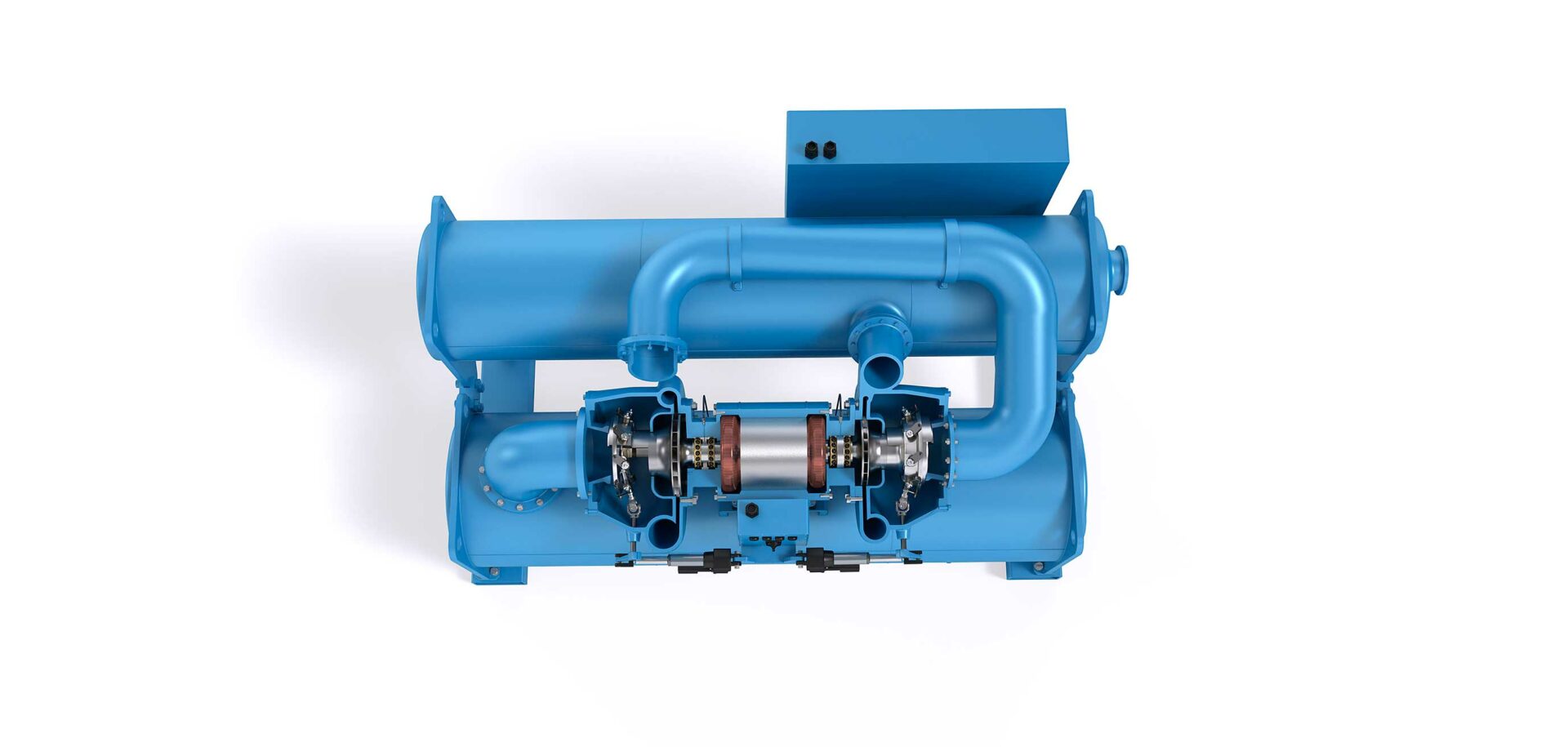
Investigating the Future of High-Performance Volute Design in Centrifugal Compressors
Overview
With the increasing demand for efficient and sustainable district heating solutions, high-temperature heat pumps are gaining traction, particularly those powered by green electricity. The shift towards low global warming potential refrigerants, such as R1234ze(E), R1234ze(Z), R1234yf, along with natural alternatives like Isobutane (R600a) and CO2, is essential. However, designing centrifugal compressors that operate effectively at high Mach numbers poses significant challenges in the realm of Computational Fluid Dynamics (CFD), particularly when dealing with the unique behaviors of real gases.
Project Insight
This investigation will be part of a master’s thesis initiative, situated within a compressor aerodynamics team that focuses on the application of centrifugal compressors in heat-pump technologies. This project aims to refine the implementation of refrigerants in CFD models to analyze performance across various operational conditions.
Key Objectives
- Simulating Compressor Performance: Develop sophisticated numerical tools that simulate and assess the performance of centrifugal compressors featuring radial diffusers and volutes. The goal is to model behavior at both designed specifications and off-design scenarios.
- Refrigerant Parametrization: Focus on centrifugal compressor components that handle high pressure ratios efficiently, leveraging R600a (Isobutane) and/or R1234ze(E) as benchmark refrigerants.
- Volute Parameterization & Flow Analysis: Parameterize volutes and evaluate numerous CFD approaches in commercial tools, ensuring comprehensive flow physics capture, from choke to stall conditions across complete compressor stages.
Responsibilities and Expectations
- Literature Review: Conduct an exhaustive literature review focusing on volute design principles within centrifugal compressors to support theoretical underpinnings.
- CFD Simulation Implementation: Embed the specified refrigerants into a leading CFD software package, performing and analyzing simulations for compressors equipped with both radial diffusers and volutes.
- Boundary Condition Explorations: Investigate the feasibility and accuracy of periodic boundary conditions in simulations.
- Simulation Process Development: Create either an automated or semi-automated process for CFD simulations, ensuring results remain normalized and data integrity is upheld.
Qualifications Required
To engage effectively with this project, candidates should possess:
- A Master’s degree (or be currently pursuing) in mechanical or aerospace engineering, or equivalent experience.
- Familiarity with industry-standard CFD tools and software.
- Proficiency in programming languages, particularly Matlab and/or Python.
- Strong analytical, communication, and problem-solving skills.
About Siemens Energy
Siemens Energy is at the forefront of addressing the global demand for energy across over 90 countries while prioritizing environmental sustainability. The company remains dedicated to transforming energy access into a sustainable reality for all stakeholders involved.
How to Apply
Interested candidates are encouraged to submit their applications through the Siemens Energy Careers page. For inquiries regarding the position, please contact Henrik Pilvinge directly.
 Visualizing advancements in centrifugal compressor design and technology.
Visualizing advancements in centrifugal compressor design and technology.
In summary, as the demand for high-efficiency refrigerants increases in the energy sector, so too does the need for innovative CFD techniques capable of addressing the complexities introduced by high Mach number flows. With organizations like Siemens Energy leading the charge, the future of sustainable energy looks promising, driven by competent engineering skills and cutting-edge technology.













